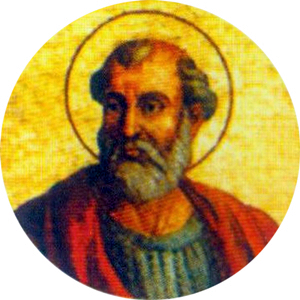St. Cornelius was elected pope in 251, during the persecutions of Emperor Decius. He was tasked with ending the schism brought on by his rival, the first anti-pope Novatian. At a synod of bishops, Cornelius was confirmed as the true pope.
As a result of the Decian persecution, the Church faced a great controversy over whether they could pardon and receive back into the Church those who had apostatized in the face of martyrdom. Cornelius decreed that those who did this must be welcomed back, but insisted that they perform an adequate penance.
In 253, Cornelius was exiled by the emperor Gallus. He died of the hardships he endured during exile, and is considered a martyr.
St. Cyprian of Carthage was a close friend of Pope Cornelius, supporting him in his efforts against the anti-pope and in re-admitting apostates.
Cyprian was born to wealthy pagans around the year 190, and was well-educated. He converted when he was 56, was ordained a priest the following year, and then became bishop two years after that.
Cyprian is second only to St. Augustine as a Father of the African Church. His writings are very important, especially his treatise on The Unity of the Catholic Church, in which he argues that unity is grounded in the authority of the bishop, and in the primacy of the See of Rome.
During the Decian persecutions, Cyprian went into hiding, guiding his flock covertly. Despite this, he was martyred during the persecutions of the emperor Valerian on September 14, 258.

